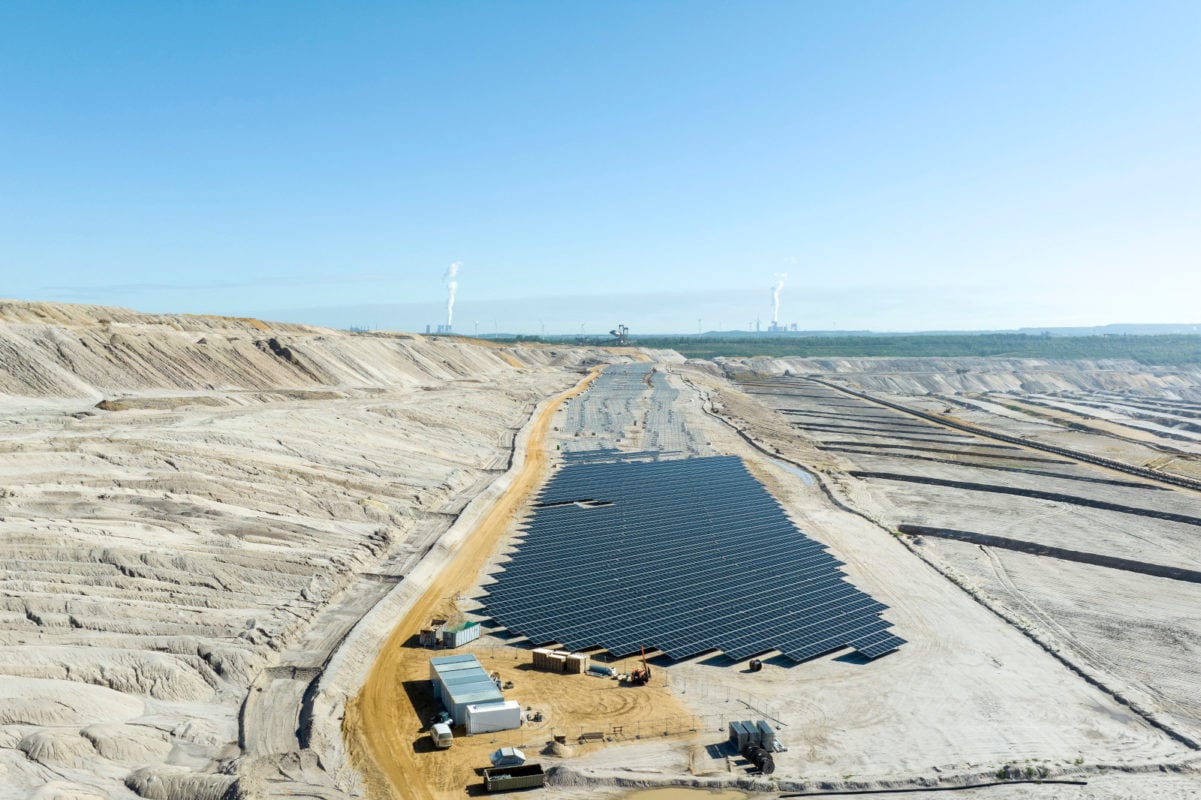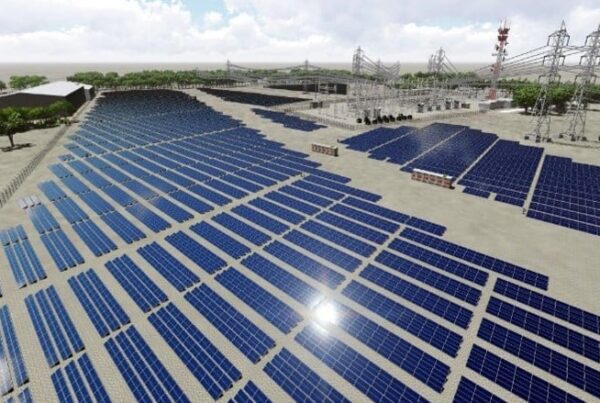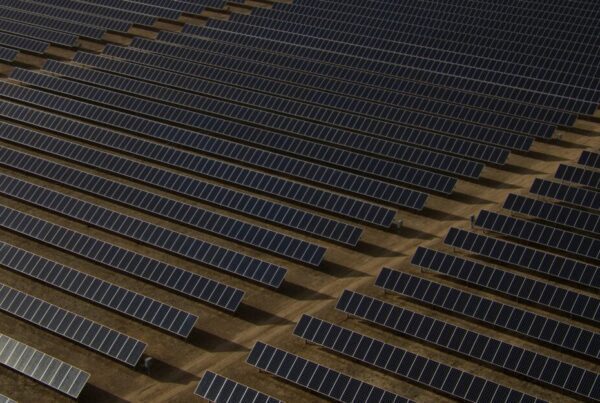
The solar project will use bifacial solar panels, and be joined by a battery energy storage system (BESS). RWE noted that the BESS will operate on a two-hour charge and discharge cycle, and have a power capacity of 8MWh, and the clean power projects are the company’s latest addition to the Hambach mine’s energy supply.
Earlier this year, RWE presented the indeland Solar Farm, which boasts a power capacity of 14.4MW and will also provide power to the mine. The company is also planning to add an additional solar project to the mine, the Neuland 1 Solar Farm, which is expected to have a capacity of 17.6MW, and RWE expects to begin construction work in the winter of this year.
“This is already the fourth large solar project we are launching in the Rhenish mining district within a very short period of time, again in combination with a storage system,” said Katja Wünschel, CEO of RWE Renewables Europe & Australia.
“Across Germany, the capacity of these renewable energy projects will amount to 1GW by 2030, with at least 500MW to be located in the Rhenish mining district,” added Wünschel. “To this end, we are investing around €4 billion gross.”
Projects such as these will be important as Germany looks to further its investment in the solar sector. According to Fraunhofer ISE, in 2022, solar accounted for 64.9GW of Germany’s net power generation capacity, more than any other single course, and significantly more than lignite, which was responsible for just 18.9GW. Germany’s reliance on lignite has fallen from a peak of 21.3GW in 2010 to less than 20GW, for the first time since 2002, in 2022.
RWE’s latest projects are particularly relevant considering that the company plans to cease operations at the Hambach mine by 2029, ahead of the German government’s plans to phase out all coal-fired power generation by 2038. Once the Hambach mine closes, RWE plans to continue operating the solar farms, although did not specify how the power would be used, until the Hambach lake is filled with water, submerging all industrial operations, in the 2060s.
The news follows the announcement of a partnership to invest €2 billion into vertically integrated PV manufacturing in Germany, as companies across the country look to invest more in the solar sector.





